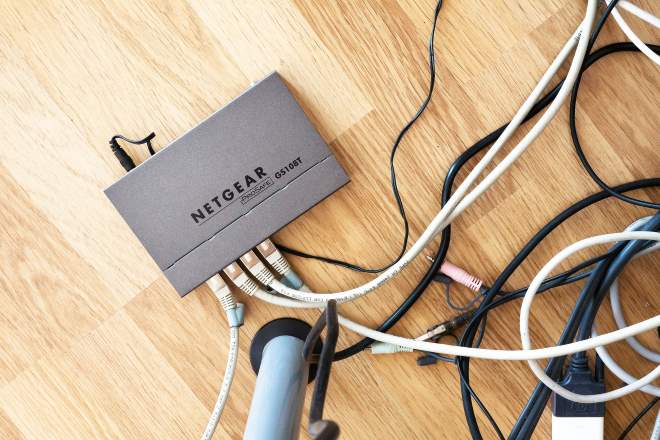Affordable Internet Plans USA 2025: How Seniors and Businesses Can Save Money
Many seniors and small businesses pay for internet services they seldom use. In 2025, affordable plans and government programs make savings more accessible. This article explains practical steps—assessing needs, finding suitable plans, and negotiating with providers—to lower overall monthly internet costs.

Understanding Your Internet Needs: Avoid Overpaying for Speed
A critical step toward saving on internet bills is assessing the speeds you really need. Many seniors primarily use the internet for browsing, emailing, streaming videos, and social interaction. For most, moderate speeds around 50 to 100 Mbps sufficiently support these activities without interruptions. Paying for ultra-high-speed plans designed for data-heavy tasks such as gaming or large file transfers can unnecessarily increase costs.
Similarly, businesses should analyze their day-to-day online functions. Retail shops, small offices, or service providers may require reliable connections but do not always need top-tier speeds. Understanding your bandwidth needs can guide you toward more cost-effective plans aligned with actual usage without compromising performance.
Negotiating with Internet Service Providers
Many internet service providers (ISPs) in the United States aim to retain their customers by offering discounts or promotional rates. Seniors and business owners are encouraged to contact their current ISPs directly to inquire about available promotions, loyalty discounts, or bundling opportunities that combine internet service with TV or phone packages. Sometimes, a simple call can lead to a lower monthly bill or enhanced service benefits. Being proactive and prepared to discuss your usage and budget goals can yield better offers.
Leveraging Federal and State Support Programs
Several government initiatives in the United States aim to make internet more affordable for eligible populations, including seniors and small businesses:
-
Lifeline Program: This longstanding federal subsidy provides eligible low-income residents a monthly discount on phone or internet services. Seniors who receive benefits such as Medicaid, Supplemental Security Income (SSI), or Veterans’ pensions often qualify for this discount.
-
Affordable Connectivity Program (ACP): ACP assists eligible households with affordable internet access. This program targets both rural and urban low-income communities, helping bridge the digital divide and reduce monthly expenses.
It is essential to verify eligibility criteria and application procedures through official federal or state websites to benefit from such subsidies.
Affordable Plans Tailored for Seniors and Low-Income Households
Several ISPs in the United States offer budget-friendly internet plans designed with seniors and low-income individuals in mind. These plans often provide:
- Moderate speeds adequate for general use (ranging approximately from 50 to 150 Mbps)
- No data caps or credit checks
- Equipment included or available without additional cost
- No long-term contracts
While specific providers and plans may vary across regions, the focus on affordability, simplicity, and reliability helps many seniors stay connected without overspending. Seniors ought to research the availability of such plans in their area and carefully consider factors such as data allowance and contract terms.
Small Business Internet: Balancing Cost, Performance, and Flexibility
For businesses, internet service is not just a utility but an operational necessity. Affordable business internet plans are available with features including:
- Scalable speeds to adapt as business needs grow or fluctuate
- No-contract options to maintain flexibility
- Bundling with phone or TV services to reduce overall costs
- Enhanced security features to protect sensitive data
- Business-grade customer support
Comparing providers based on service availability and the specific needs of the business is recommended. Urban businesses may have access to fiber-optic plans offering symmetrical upload and download speeds, while rural businesses might rely on fixed wireless or satellite services.
Alternative Solutions for Rural Areas
Internet access in rural parts of the United States can be costlier and less reliable due to infrastructure limitations. To address this, alternative options exist:
- Fixed Wireless Internet: Uses radio signals to deliver broadband; companies like Rise Broadband and Viasat provide such services.
- Satellite Internet: Providers such as HughesNet and Starlink offer coverage across rural areas, albeit typically with higher latency.
- Mobile Hotspots: Some mobile carriers allow unlimited data plans that can function as reliable home internet substitutes when wired alternatives are unavailable.
Rural residents are encouraged to evaluate these alternatives alongside government subsidies to optimize connectivity and cost-effectiveness.
Equipment Choices Can Add Up
Many ISPs charge monthly rental fees for modems and routers. Seniors and businesses looking to lower monthly bills could save money over time by purchasing their own compatible equipment. This one-time investment helps avoid recurring rental charges and can sometimes improve network performance.
Bundling Services for Additional Savings
Combining internet with other services such as phone or television often results in package discounts. Seniors and businesses should examine bundling options available in their locality, balancing cost savings with service quality. Bundled packages can reduce the complexity of managing multiple bills but require careful review to avoid paying for unnecessary features.
Utilizing Online Tools to Compare Plans
Finding the most affordable and reliable internet plan involves research. Online comparison tools and customer review platforms aggregate pricing, speeds, and service quality information, helping consumers make informed choices. For seniors and business owners unfamiliar with market options, these resources simplify decision-making by tailoring recommendations based on location and needs.
Beware of Hidden Fees and Contract Terms
When reviewing internet plans, attention to the fine print is crucial. Watch for:
- Installation and activation fees
- Early termination charges
- Data usage caps and potential overage penalties
- Equipment rental costs
- Automatic price increases after promotional periods
Selecting plans with transparent terms and no contracts or hidden fees reduces the risk of unexpected expenses.
Final Thoughts: Educated Choices Lead to Savings
In 2025, seniors and businesses in the United States have multiple viable pathways to affordable internet access. By evaluating actual usage needs, leveraging federal programs, negotiating with providers, and carefully reviewing plan details, both groups can significantly reduce monthly internet costs while maintaining dependable online connectivity.
Disclaimer: Prices, promotions, and plan availability for internet services vary by location, dealer, and current market conditions. Consumers should verify details directly with providers to ensure accurate and up-to-date information.
Sources
- CNET: Best Internet Deals for Seniors, July 2025
- Business.com: The Best Business Internet Service Providers of 2025
- Provokepulse.com: Surprising Ways to Save Big on Internet Costs




